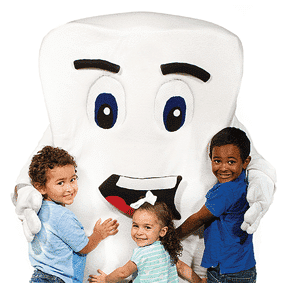Hearing the sound of your child grinding their teeth at night can be unsettling for any parent. While this condition, known medically as bruxism, is common in children, it can lead to a variety of dental issues if not addressed. At Tebo Dental, we are here to guide you through understanding bruxism, its potential effects on your child’s dental health, and the steps you can take to help soothe and prevent it.
Understanding Bruxism
Bruxism is the involuntary grinding and clenching of teeth. It often occurs during sleep but can also happen during daytime hours, especially in times of concentration or stress. While the root cause of bruxism can vary, some factors may include misaligned teeth, stress, and certain medical conditions. Bruxism can occur at any age, but it is important to recognize the symptoms early on to prevent tooth damage.
Recognizing the Signs of Bruxism
Identifying bruxism early is crucial for preventing potential dental complications. Signs to watch for in children include:
- Sounds of teeth grinding during sleep
- Complaints of jaw pain or headaches upon waking up
- Wear and tear on teeth, noticeable during routine dental check-ups
- Increased tooth sensitivity to hot or cold foods and beverages
Potential Effects of Untreated Bruxism
If not addressed, chronic teeth grinding can lead to dental issues including:
- Tooth damage: Enamel wear, chipped teeth, and increased sensitivity
- Jaw disorders: Including temporomandibular joint (TMJ) issues
- Sleep disruptions: Affecting the quality of sleep for your child and other family members
Strategies for Managing Childhood Bruxism
While some children outgrow bruxism without treatment, there are strategies to help manage and mitigate its effects:
- Stress Reduction: Since stress can be a significant trigger for bruxism, activities like reading, warm baths, or relaxation exercises before bedtime can help calm your child.
- Proper Dental Care: Regular visits to Tebo Dental can help to identify and proactively address potential dental issues related to bruxism, such as misalignment.
- Mouthguards: For nighttime teeth grinding, a dentist-provided mouthguard can protect your child’s teeth and reduce the strain on their jaw.
When to Seek Professional Help
It’s important to consult with a dental professional if:
- Bruxism persists: This is especially important if your child complains of ongoing jaw pain, headaches, or if you notice wear on their teeth.
- You notice misaligned teeth: An orthodontic evaluation can determine if your child needs corrective treatment.
- Your child experiences significant stress: If you suspect stress may be a trigger, a pediatrician or child psychologist can provide strategies for management and alleviation.
(SPECIAL NOTE: Our staff at Tebo Dental is not qualified to determine whether stress is causing your child to grind their teeth. We recommend that you contact your pediatrician to get a medical professional’s opinion on whether to see a child psychologist.)
At Tebo Dental, we’re committed to supporting the dental health and well-being of our patients. If you suspect your child is experiencing bruxism, we are here to help with a comprehensive approach to diagnosis, prevention, and care. By addressing bruxism early, we can help protect your child’s smile and ensure their comfort and health long-term.
Is Your Child Experiencing Bruxism? Don’t wait for the problem to escalate. Contact Tebo Dental today to schedule an appointment. Our dedicated team is ready to provide the care and solutions your child needs for a healthy smile and peaceful night’s sleep.





